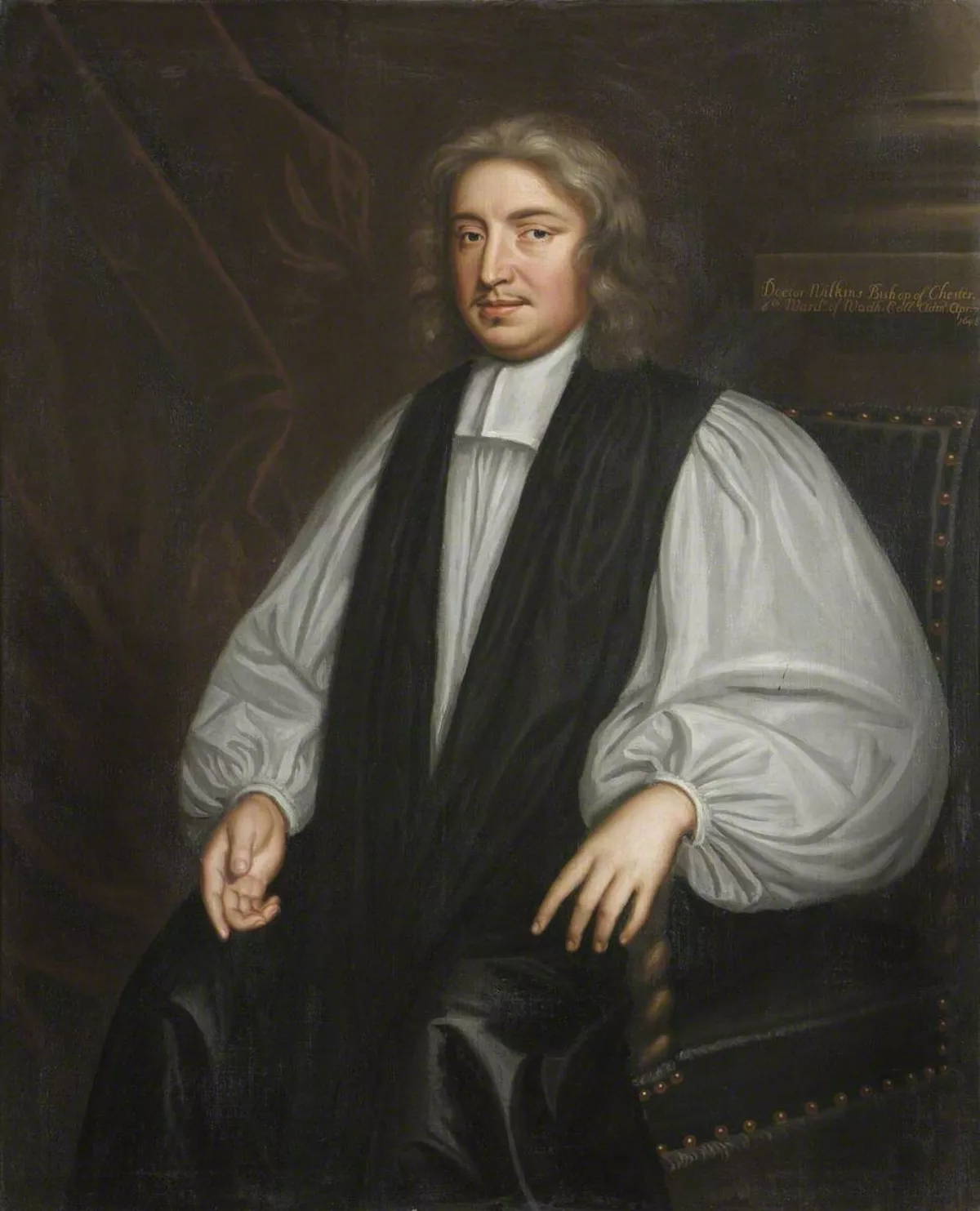 1.
1. John Wilkins was an English Anglican clergyman, natural philosopher, and author, and was one of the founders of the Royal Society.

 1.
1. John Wilkins was an English Anglican clergyman, natural philosopher, and author, and was one of the founders of the Royal Society.
John Wilkins was Bishop of Chester from 1668 until his death.
John Wilkins was a polymath, although not one of the most important scientific innovators of the period.
John Wilkins was one of the founders of the new natural theology compatible with the science of the time.
John Wilkins is particularly known for An Essay towards a Real Character and a Philosophical Language in which, amongst other things, he proposed a universal language and an integrated system of measurement, similar to the metric system.
John Wilkins lived in a period of great political and religious controversy, yet managed to remain on working terms with men of all political stripes; he was key in setting the Church of England on the path toward comprehension for as many sects as possible, "and toleration for the rest".
John Wilkins was a lover of mankind, and had a delight in doing good.
John Wilkins was probably born at Canons Ashby, Northamptonshire, though some sources say Fawsley; his father Walter Wilkins was a goldsmith and his mother Jane Dod was daughter of John Dod, a well-known conforming Puritan.
John Wilkins's mother then remarried to Francis Pope, and their son, Walter Pope was a half-brother.
John Wilkins was educated at a school in Oxford run by Edward Sylvester, and matriculated at New Inn Hall.
John Wilkins then moved to Magdalen Hall, Oxford where his tutor was John Tombes, and graduated with a BA degree in 1631, an MA degree in 1634.
John Wilkins then became chaplain successively to Lord Saye and Sele, and by 1641 to Lord Berkeley.
John Wilkins was one of the group of savants, interested in experimental philosophy, who gathered round Charles Scarburgh, the royalist physician who arrived in London in summer 1646 after the fall of Oxford to the parliamentarian forces.
John Wilkins travelled to continental Europe, and according to Anthony Wood visited Heidelberg.
In 1648 John Wilkins became Warden of Wadham College in Oxford, and under him the college prospered.
John Wilkins fostered political and religious tolerance and drew talented minds to the college, including Christopher Wren.
In 1656, John Wilkins married Robina French, youngest sister of Oliver Cromwell, who had been widowed in 1655 when her husband Peter French, a canon of Christ Church, Oxford, had died.
John Wilkins thereby joined a high stratum of Parliamentary society, and the couple used rooms in Whitehall Palace.
John Wilkins was there long enough to befriend and become a patron of Isaac Barrow.
John Wilkins suffered in the Great Fire of London, losing his vicarage, library and scientific instruments.
John Wilkins became vicar of Polebrook, Northamptonshire, in 1666; prebendary of Exeter in 1667; and in the following year, prebendary of St Paul's and bishop of Chester.
John Wilkins owed his position as bishop to the influence of George Villiers, 2nd Duke of Buckingham.
John Wilkins had been a sympathetic reader of John Humfrey's 1661 justification of his acceptance of re-ordination by William Piers, having already once been ordained in the Presbyterian style by a classis.
John Wilkins felt the Presbyterians could be brought within the Church of England, while the Independent separatists were left outside.
John Wilkins died in London, most likely from the medicines used to treat his kidney stones and urinary retention.
In 1641 John Wilkins published an anonymous treatise entitled Mercury, or The Secret and Swift Messenger.
John Wilkins provided an open letter to Ward; and Ward replied at greater length.
John Wilkins makes two main points: first, Webster is not addressing the actual state of the universities, which were not as wedded to old scholastic ways, Aristotle, and Galen, as he said; and secondly Webster's mixture of commended authors, without fuller understanding of the topics, really was foolish.
John Wilkins made light of this in the way of pointing to Alexander Ross, a very conservative Aristotelian who had attacked his own astronomical works, as a more suitable target for Webster.